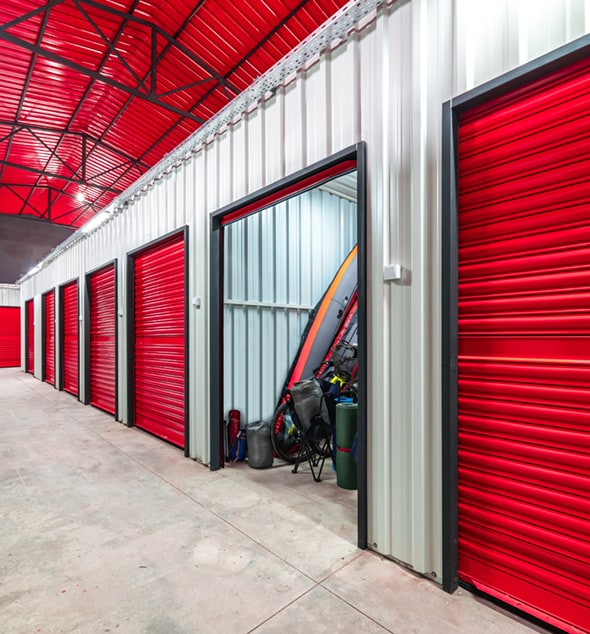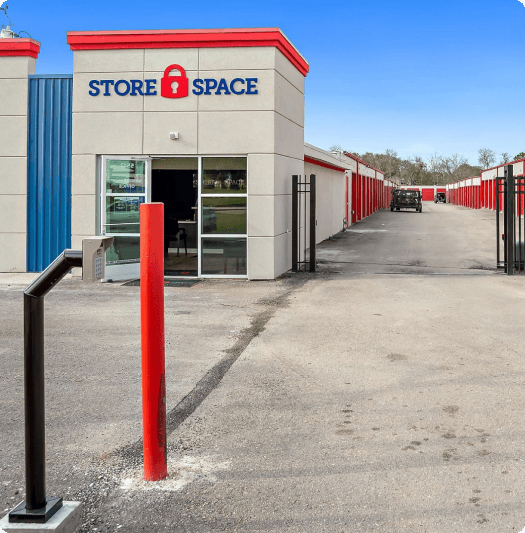7 Genius Tips for Storing Paper Like Michael Scott
.jpg?sfvrsn=3c91b5ed_0)
Paper clutter can take form in a variety of ways around your home and office. Your counter may be crowded with junk mail, one of your kitchen drawers may be flooded with receipts, or your file cabinet may be overflowing with outdated projects and personal documents. Fortunately, this doesn't have to be the case. There is even an easy way to clear this clutter: by developing a system to properly organize important documents and eliminate unnecessary papers.
To help you get started, we've compiled a list of seven ingenious tips to help you properly sort tax returns, certificates and just about every other type of paper you are having trouble storing. Along the way, we will consult everyone's favorite paper expert, Michael Scott (Regional Manager of Dunder Mifflin Inc and CEO of The Michael Scott Paper Company), for reassurance and a few laughs.
"You miss 100% of the shots you don’t take"
— Wayne Gretzky — Michael Scott
With apologies to The Great One, you're likely to misplace 100% of the important documents you fail to store properly.
Follow the steps listed below to get your paper storage back in shape and once and for all curb paper clutter in your home or office.
How to Store Paper Like a Pro
1. Gather important documents and other papers
The first step to taking control of your paperwork is to search for all your papers and gather them in one place. While doing so, make sure to collect all the various types of documents you have lying around: bills, mail, important documents, receipts and others that may hide in plain sight.
It is incredibly easy to justify hanging on to one or two receipts, but once you have all your papers assembled and laid out in front of you it will be harder to put off organizing your paperwork.

2. Develop categories to sort your papers
"And I knew exactly what to do. But in a much more real sense, I had no idea what to do."
– Michael Scott
Next, you will want to take this pile of papers and sort it into various categories. Starting out, you can sort your paperwork into four broad categories: pending (documents that require a future action or relate to upcoming events), important (documents you need to save), memorable (documents you want to save), and extraneous (documents you will recycle).
After sorting your paperwork into these broad categories, you should separate the pending and extraneous documents from the documents you are set on keeping either out of necessity or desire. Once you have set the pending and extraneous documents aside (you will organize them later), sort the remaining documents by type. Keep all your personal documents together and do the same with projects, school papers, and other records.
At this point, you should also consider scanning your important documents. Make sure to consider the accessibility guidelines of any links included before choosing to store a document digitally.
3. Recycle outdated documents
Once you establish an organization system that works for you and have all your documents arranged into categories, you will then want to recycle your outdated documents and the ones you have determined are extraneous. By converting your files and other records to digital storage, you can also cut down on the number of papers you need to store.

4. Utilize file folders and/or a filing cabinet
“I am running away from my responsibilities. And it feels good.”
– Michael Scott
After recycling outdated documents and moving forward with the records you have decided to keep, it is important to store your papers in acid free file folders. Acid free file folders will protect your papers and prevent yellowing. Make a file folder for each category of document you need to store. Keeping project proposals, presentations, reports, invoices and other document types all separate from one another is key to effectively organizing paperwork. Once organized, these folders can then be stored within a plastic tote or similar box.
Filing cabinets are also great for organizing large collections of paperwork, but if you only have a few files to organize, one may not be necessary. A filing cabinet may also likely take up significant space, whereas a record sorter or plastic tote can easily be stowed away in a closet or office.
It's important to consider what system will work best for you. How often are you going to access these files? Will your paperwork grow as the year progresses?
5. Start hanging files vertically
By sorting your documents and other papers into a file folder, you will be able to start hanging files upright, which will make it easier to distinguish between forms and see exactly how many files you have on hand. Storing your documents horizontally in a stack would make it very difficult to quickly access a particular file when needed.
Most file sorters and containers will possess internal rails, which can be used to hang folders. This will effortlessly create a file system that you can easily access on a regular basis.
6. Use a filing box for pending documents
It is also necessary to keep pending documents organized while you hang on to them. Make sure to purchase an additional filing box or mail organizer to keep related items organized and achieve more space on your desk. If you are looking to access your materials quickly, make sure to purchase a file box without a cover or lid.
You can also print labels for your desk organizer to make it easy to quickly identify which category you should store items in. Paper clips can also be helpful to keep related documents together.
7. Organize your books and magazines
Finally, after getting your certificates and other documents organized, you will want to move on to organizing your books and magazines. Make sure to scan your home once again for all the books you have on hand. Once gathered, pare down your collection by donating or selling titles you never read or forgot you had on your shelves.
Here are a few ideas to help you get rid of books when it feels overwhelming:
- Ask yourself which books you would save first in a fire.
- Ask yourself which books hold sentimental value.
- Ask yourself which books you would take on a deserted island.
- Ask yourself which books you were going to read next.
Long-Term Paper Storage
How do you store paper long term? Important documents should always be stored in a cool, dark place. Heat and humidity can damage sensitive documents and sentimental items, while light can fade paper. In general, if you are renting a storage unit, paper documents and other fragile items should be stored in climate-controlled storage to mitigate the long-term effects of humidity and extreme changes in temperature. Read more about the 6 golden rules for packing for long term storage.

Paper Storage FAQs
How do you organize papers without a file cabinet?
You can organize papers in several ways without a file cabinet. Whether you are looking to organize paper materials, such as envelopes or sheets of craft paper, or organize bills and other important documents, you can use plastic totes, mail organizers and several additional methods.
Is it better to store paper in a plastic or cardboard box?
Plastic totes or plastic boxes are better. Cardboard boxes will attract insects and other pests. Also, cardboard boxes will provide less protection from moisture and miscellaneous damage.
Is a filing system good for home paper storage?
Filing systems are a great way to sort a large quantity of records, reports and certificates. These systems can be used in a home office to neatly arrange personal documents and other records. If you only have a minimal quantity of records on hand, you may only need a few folders and plastic totes to create a system that works well for you.
Start Conquering Your Paper Clutter With Proper Storage
Now that you have conquered your clutter, you can rest easy knowing that you have purged your home of all papers. In the future, make sure to use your pending box to sort incoming mail, bills and invoices. Once you are finished with a document and it requires no future action, recycle it.
If you are having trouble safely storing a large quantity of important documents, such as the invoices of a small business, consider renting a climate-controlled storage unit. We have facilities located across the country. Visit our storage location finder for the facility located nearest to you.








